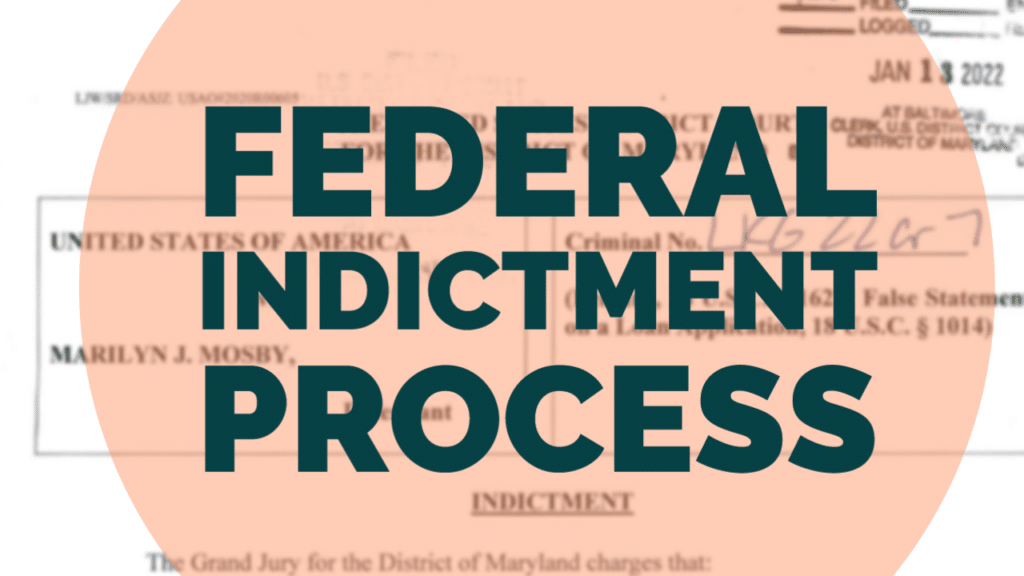The federal indictment process is horrifying.
What do you do when the federal government comes knocking at your door? If you have been indicted, you need to know what is happening and what comes next.
In this FAQ, we will answer some common questions about federal charges. What is a superseding indictment? What are my rights? What happens next? Keep reading to find out more.

How Does a Prosecutor Get the Federal Indictment Process Started?
The federal grand jury system is owned by federal prosecutors. You have no right to present your side of the evidence in the federal grand jury. It is a joke.
NPR has a good snippet on the history of the grand jury:
Grand juries — first recognized in the Magna Carta, the English legal charter, in 1215 — have been around for centuries. But their procedures are unfamiliar to most people outside the legal system. The concept of the grand jury was so firmly established in the law that the Founding Fathers provided for grand juries in the Bill of Rights. The Fifth Amendment says that “no person shall be held to answer for a capital, or otherwise infamous crime, unless on a presentment or indictment of a grand jury…”
You have probably heard the phrase “you can indict a ham sandwich.” It is true. If the feds want you, they’ll get you.
It is helpful to hire federal criminal lawyers prior to a federal indictment because we can protect you better if we represent you before you are charged.
We have many clients that hire us but they’ve already said too much or shared too much.
Below is an example of a federal criminal indictment.
What are my Rights?
The Constitution grants you several rights if you have been indicted. You have the right to a speedy and public trial, the right to an attorney, and the right to confront your accusers.
You also have the right to remain silent. It is important to exercise this last right, as anything you say can be used against you in a court of law.
What is Contained in a Federal Indictment?
When a person is indicted, they are given formal notice that it is believed that they committed a crime. The indictment contains the basic information that informs the person of the charges against them.
Federal Rule of Criminal Procedure 7(c) gets more specific about the basic requirements for an indictment:
The indictment or information must be a plain, concise, and definite written statement of the essential facts constituting the offense charged and must be signed by an attorney for the government. It need not contain a formal introduction or conclusion. A count may incorporate by reference an allegation made in another count. A count may allege that the means by which the defendant committed the offense are unknown or that the defendant committed it by one or more specified means. For each count, the indictment or information must give the official or customary citation of the statute, rule, regulation, or other provision of law that the defendant is alleged to have violated.
What Happens Next in the Federal Indictment Process?
After an indictment is filed, the defendant will be arraigned. This is when the defendant appears before a judge and enters a plea of guilty or not guilty. The defendant may also ask for a bail hearing at this time. If the defendant pleads not guilty, the case will go to trial. If the defendant pleads guilty, sentencing will typically happen soon after.
If you have been indicted, it is important to know your rights and what comes next. A superseding indictment can occur at any time during proceedings, so it is important to stay up-to-date on your case.
What is a Superseding Indictment?
A superseding indictment is an additional charge that is filed against a defendant after the original indictment. This usually happens when new evidence or information arises that warrants an additional charge. A superseding indictment can occur at any time during the proceedings, from the initial filing to the conclusion of the trial.
Can I Fight my Federal Indictment in Court?
As federal criminal lawyers we routinely file pretrial motions challenging unlawful aspects of a case.
Many of these motions deal with illegal police activity (illegal warrant, lack of probable cause, unlawful interrogation, etc)
We also have the ability to challenge a federal indictment.
Each federal crime has elements. If an indictment fails to list all of the required elements your federal lawyer can file a motion to dismiss the motion as legally insufficient.
Your attorney can also file a motion to dismiss the indictment alleging improper behavior by the federal prosecutor in the grand jury process.
These motions are highly technical and hiring an experienced lawyer is key to have any shot at all to win on these types of motions.
Would You Like a Free Consultation?
That’s all for our FAQ on federal indictments. We hope you found it helpful. The process of being indicted by the federal government is a frightening one, and you need to find an attorney who makes you feel comfortable and has great experience with these types of cases.
Our lawyers have over three decades of combined federal criminal experience and have handled more than 400 such cases. Click below to fill out our simple intake form and we will call you within two hours to discuss your case in further detail – at no cost to you.

